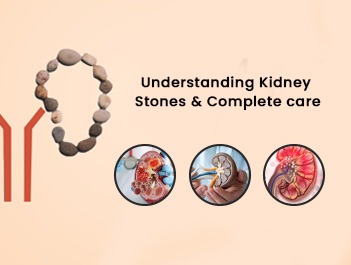
Understanding Fatigue: Causes, Diagnosis, and Treatment Kukatpally, Hyderabad

Fatigue is more than just feeling tired. It is a persistent state of physical or mental exhaustion that does not improve with rest. While occasional fatigue is common, chronic or unexplained fatigue may indicate an underlying medical condition. If you’re looking for the best doctors for fatigue in Kukatpally, Hyderabad, Anu Neurology and Urology Clinic – Neuro & Multispeciality, led by Dr. Anusha Challa, offers expert care for diagnosing and treating fatigue-related disorders.
In today’s fast-paced world, fatigue has become a prevalent issue for many individuals. While fatigue can result from various causes, two significant contributors to the increasing fatigue levels in modern society are sedentary lifestyles and long working hours. These factors have far-reaching consequences on both physical and mental health, often leading to chronic fatigue and other related health problems.
1. Sedentary Lifestyle and its Effects on Fatigue
A sedentary lifestyle, characterized by long hours of sitting and minimal physical activity, is a key factor in the growing fatigue epidemic. In many professions, particularly those involving desk jobs, employees spend the majority of their workday sitting in front of computers. This lack of movement and exercise not only leads to physical discomfort, such as back and neck pain, but also significantly reduces energy levels.
When the body remains inactive for long periods, blood circulation decreases, and the muscles become stiff and weakened. This leads to overall tiredness and a sense of exhaustion. Additionally, a sedentary lifestyle can contribute to weight gain, obesity, and other metabolic issues that increase the risk of chronic conditions like diabetes and cardiovascular disease, further exacerbating fatigue.
2. The Impact of Long Working Hours
Long working hours, especially in high-pressure environments, are another major contributor to fatigue. Extended work hours often lead to sleep deprivation, as individuals sacrifice rest to meet deadlines or finish tasks. The lack of sleep impairs the body’s ability to recover and recharge, leading to persistent tiredness and a lack of focus during the day.
Moreover, long working hours can lead to mental burnout, which increases fatigue. The constant pressure to perform and the inability to balance work and personal life can result in stress and anxiety, which, in turn, depletes energy levels. Prolonged exposure to such stress can lead to chronic fatigue syndrome, a condition where exhaustion persists for months and significantly impacts daily life.
3. Cumulative Effects on Health
When combined, a sedentary lifestyle and long working hours create a vicious cycle. Fatigue leads to lower productivity, which can cause more stress and longer work hours. This cycle continues unless active measures are taken to break it. Without adequate rest and physical activity, the body’s natural processes for rejuvenation and energy replenishment are hindered.
4. Breaking the Cycle
To address fatigue caused by these factors, it’s crucial to prioritize physical activity and work-life balance. Taking breaks, incorporating exercise into daily routines, and ensuring proper sleep are essential for combating fatigue. Individuals should seek professional help if they are experiencing prolonged fatigue or symptoms of chronic exhaustion, as it may be indicative of an underlying health condition.
Fatigue is a growing issue in modern society, with sedentary lifestyles and long working hours at the forefront. However, with the right lifestyle changes and timely intervention, individuals can regain their energy and well-being.
What is Fatigue?
Fatigue can manifest as a lack of energy, motivation, or focus, and it may significantly impact daily life. It is a symptom rather than a disease and is often linked to physical, psychological, or lifestyle factors.
Types of Fatigue:
- Physical Fatigue: Feeling drained after exertion, with difficulty performing tasks.
- Mental Fatigue: Difficulty concentrating, memory problems, and reduced mental alertness.
Common Causes of Fatigue
- Medical Conditions:
- Chronic Fatigue Syndrome (CFS): Prolonged and unexplained fatigue that affects daily life.
- Neurological Disorders: Conditions like multiple sclerosis or Parkinson’s disease.
- Sleep Disorders: Insomnia, sleep apnea, or restless leg syndrome.
- Anemia: Low levels of hemoglobin reducing oxygen supply to tissues.
- Diabetes: High or low blood sugar levels causing energy fluctuations.
- Lifestyle Factors:
- Poor diet lacking essential nutrients.
- Excessive caffeine or alcohol consumption.
- Sedentary lifestyle or lack of exercise.
- Psychological Factors:
- Stress, anxiety, or depression.
- Burnout from overwork or life challenges.
If you are experiencing unexplained or persistent fatigue, it is crucial to consult a specialist for a thorough evaluation. Dr. Anusha Challa, one of the best doctors for chronic fatigue treatment in Hyderabad, is well-equipped to address these concerns.
Diagnosing Fatigue
Accurate diagnosis is key to effective treatment. The process typically involves:
- Medical History and Symptoms:
- Understanding the duration, intensity, and triggers of fatigue.
- Identifying associated symptoms like headaches, muscle weakness, or mood changes.
- Physical Examination:
- Checking for signs of underlying conditions such as anemia or thyroid dysfunction.
- Fatigue Syndrome Test:
- A comprehensive evaluation including blood tests, sleep studies, and imaging if necessary, to pinpoint the cause.
- Fatigue syndrome test in Kukatpally is available at Anu Neurology and Urology Clinic, ensuring accurate diagnosis.
Treatment Options for Fatigue
Treatment depends on the root cause of fatigue. Common approaches include:
- Medical Interventions:
- Medication: For conditions like anemia, diabetes, or thyroid imbalances.
- Therapies: Cognitive-behavioral therapy (CBT) for mental health-related fatigue.
- Neurological Care: Managing fatigue linked to neurological disorders under expert guidance from the best doctors for fatigue in Kukatpally, Hyderabad.
- Lifestyle Modifications:
- Balanced Diet: Incorporate whole grains, lean proteins, and fruits and vegetables.
- Regular Exercise: Activities like yoga, walking, or swimming can boost energy levels.
- Sleep Hygiene: Maintain a consistent sleep schedule and create a restful environment.
- Alternative Therapies:
- Stress management techniques like mindfulness or meditation.
- Acupuncture or massage therapy to promote relaxation and improve energy.
Why Fatigue Should Not Be Ignored
Fatigue may be a sign of a serious health issue. Ignoring it can lead to:
- Reduced productivity and quality of life.
- Worsening of underlying conditions.
- Increased risk of accidents due to impaired focus.
Prompt medical attention from experts like Dr. Anusha Challa ensures timely diagnosis and treatment.
Expert Care at Anu Neurology and Urology Clinic
For those seeking the best doctors for chronic fatigue treatment in Hyderabad, Anu Neurology and Urology Clinic – Neuro & Multispeciality provides personalized care to address all fatigue-related concerns.
Why Choose Dr. Anusha Challa?
- Expertise in neurology and fatigue-related conditions.
- Comprehensive diagnostic and treatment approach.
- Compassionate care tailored to individual needs.
Conclusion
Fatigue is a complex condition that can significantly impact your physical and emotional well-being. While it is common to feel tired occasionally, persistent fatigue requires professional evaluation and care.
For accurate diagnosis and effective treatment of fatigue, visit Anu Neurology and Urology Clinic – Neuro & Multispeciality. With the guidance of Dr. Anusha Challa, one of the best doctors for fatigue in Kukatpally, Hyderabad, you can regain your energy and quality of life. Don’t let fatigue hold you back—schedule your consultation today!
- Preventive Care:
- Health screenings: Regular check-ups and tests that help detect conditions early (e.g., blood pressure checks, cholesterol tests, cancer screenings).
- Vaccinations: Immunizations to prevent infectious diseases, such as flu shots, childhood vaccinations, and vaccines for preventable conditions like HPV and pneumonia.
- Health education: Information and counseling on maintaining a healthy lifestyle, proper diet, exercise, stress management, and avoiding harmful behaviors like smoking or excessive alcohol consumption.
- Primary Care:
- Family medicine: General physicians who provide routine health maintenance, treatment of common ailments, and referrals to specialists when necessary.
- Pediatrics: Care for children, including preventive services, growth monitoring, vaccinations, and treatment of common illnesses.
- Geriatrics: Medical care for older adults, focusing on chronic disease management, mobility issues, cognitive health, and end-of-life care.
- Acute Care:
- Treatment of short-term, urgent medical conditions or injuries that require immediate attention, such as infections, broken bones, and severe pain.
- Emergency care: Immediate care provided in emergency rooms (ER) for life-threatening conditions like heart attacks, strokes, trauma, and accidents.
- Chronic Disease Management:
- Diabetes care: Monitoring and treatment of blood sugar levels, including insulin management and lifestyle adjustments.
- Hypertension: Ongoing management of high blood pressure through medications, diet, and exercise.
- Asthma/COPD: Long-term treatment for respiratory conditions using inhalers, medications, and lifestyle changes.
- Arthritis, heart disease, and other long-term conditions: Managing symptoms and improving quality of life through medical interventions and therapy.
- Mental Health Care:
- Treatment for mental health conditions like anxiety, depression, PTSD, and bipolar disorder through therapy, counseling, and medication.
- Counseling or psychotherapy, including cognitive behavioral therapy (CBT), talk therapy, or psychiatric care for more severe mental illnesses.
- Specialist Care:
- When primary care providers or family doctors identify a condition that requires more specific expertise, patients may be referred to specialists in areas like cardiology, orthopedics, dermatology, or neurology.
- When primary care providers or family doctors identify a condition that requires more specific expertise, patients may be referred to specialists in areas like cardiology, orthopedics, dermatology, or neurology.
- Diagnostic Services:
- Laboratory tests: Blood work, urine tests, biopsies, and other diagnostic procedures to help diagnose illness.
- Imaging services: X-rays, MRIs, CT scans, and ultrasounds to visualize internal structures for the diagnosis of injuries, diseases, or conditions.
- Rehabilitation:
- Services like physical therapy, occupational therapy, and speech therapy to help patients recover from surgery, injury, or illness and regain functional abilities.
- Services like physical therapy, occupational therapy, and speech therapy to help patients recover from surgery, injury, or illness and regain functional abilities.
- Health Promotion:
- Encouraging healthy lifestyles through exercise, nutrition, smoking cessation programs, mental health support, and other health initiatives.
- Programs that teach individuals how to manage their health and prevent disease, such as weight management or stress reduction techniques.
- End-of-Life Care:
- Palliative and hospice care focus on providing comfort and support to individuals with serious, life-limiting illnesses.
- Managing pain and improving quality of life for terminally ill patients while supporting families through the process.
General healthcare is essential to promoting overall well-being, reducing the risk of serious health problems, and improving life expectancy. It involves a combination of medical, psychological, and social support to help individuals live healthier, more fulfilling lives.
Recent Posts



Understanding Kidney Stones and Complete care Kukatpally, Hyderabad

